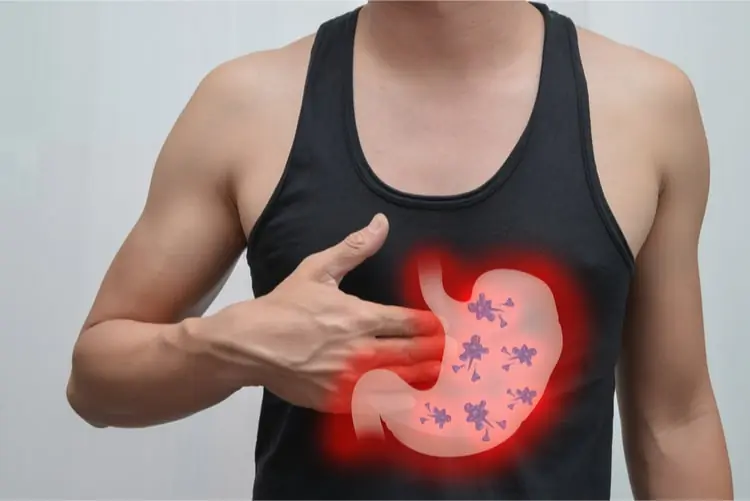6 Early Warning Symptoms of Stomach Cancer to Watch For

What is Early-Stage Stomach Cancer?
Early-stage stomach cancer refers to stage 0 (precancerous stage) and stage I. Based on tumor progression, the AJCC classification system divides stomach cancer into five main stages:
- Stage 0: Abnormal cells are found in the stomach lining, which may turn into cancer and spread to nearby tissues. This is known as carcinoma in situ (CIS).
- Stage I: Cancer has formed in the mucosa (the innermost layer) of the stomach.
- Stage II: Cancer has grown beyond the mucosa into the serosa (outermost layer) or has reached nearby lymph nodes.
- Stage III: Cancer cells have spread to nearby lymph nodes and organs.
- Stage IV: Cancer has metastasized to distant organs.
Detecting stomach cancer at stage II or earlier significantly improves treatment outcomes and survival rates.
Why is Recognizing Early Symptoms Important?
If diagnosed early, stomach cancer can be completely cured, with a 5-year survival rate of up to 93% when treated promptly. Recognizing early symptoms is crucial for effective treatment.
Early detection makes treatment more straightforward and less invasive for patients. In cases where cancerous lesions are still small, they can be easily removed with endoscopic surgery. Additionally, pre- or post-operative chemotherapy and radiation therapy help reduce the risk of recurrence.
6 Early Symptoms of Stomach Cancer
Early-stage stomach cancer symptoms are often vague or absent. Symptoms typically appear when the tumor has significantly grown. Many early detections happen during medical examinations for other stomach-related conditions.
If you experience the following six symptoms, consult a doctor immediately for further evaluation:
1. Persistent Abdominal Pain
Abdominal pain is a symptom of many stomach conditions, including cancer. The pain occurs when cancer spreads through the stomach lining. Initially, the pain may be mild, but persistent pain in one area over a long period could indicate early-stage stomach cancer.
2. Indigestion, Bloating, and Heartburn
Frequent indigestion, bloating, and heartburn are warning signs of early stomach cancer. These symptoms can make you feel full quickly, even after small meals.
3. Loss of Appetite
A decreased appetite, lack of interest in food, and feeling full quickly are early-stage stomach cancer symptoms. If these symptoms are accompanied by fatigue, weakness, nausea, or abdominal pain, they become even more concerning.
4. Nausea and Vomiting Blood
Frequent nausea, especially vomiting blood, is a sign of gastritis, ulcers, or stomach cancer. Nausea can also be linked to conditions affecting the kidneys, gallbladder, or pancreas. Seeking medical advice is crucial to determine the exact cause.
5. Unusual Bowel Movements
Stomach cancer and digestive conditions often lead to irregular bowel habits, such as:
- Changes in bowel movement frequency
- Frequent diarrhea or constipation
- Persistent feeling of incomplete evacuation
- Pain during bowel movements, sometimes with blood
6. Fatigue, Weakness, and Unexplained Weight Loss
Cancer cells increase energy demand, weaken muscles, and disrupt hormones, leading to fatigue, weakness, and weight loss. If stomach function is impaired, these symptoms are more likely to occur.
In later stages, symptoms like jaundice, fluid retention (swelling), and difficulty swallowing may also appear, indicating advanced cancer or metastasis.
What to Do If You Have Early Symptoms?
Since cancer cannot be diagnosed based on symptoms alone, the first step is to undergo medical check-ups at a reputable hospital for an accurate diagnosis.
People over 40 should schedule regular cancer screenings, as stomach cancer symptoms may remain undetected until it has advanced.
Survival Rates for Early-Stage Stomach Cancer
The prognosis for early-stage stomach cancer is good, but it becomes significantly worse from stage II onward.
According to the U.S. National Cancer Institute (SEER Database), the 5-year survival rates for stomach cancer are:
- Localized stage (cancer confined to the stomach) → 75%
- Regional stage (cancer spread to nearby organs/lymph nodes) → 35%
- Distant stage (cancer spread to distant organs) → 7%
- Overall survival rate across all stages → 36%
Meanwhile, the UK Office for National Statistics reports the following 5-year survival rates:
- Stage I: 65%
- Stage II: 35%
- Stage III: 25%
- Stage IV: <5% survival rate
How is Stomach Cancer Diagnosed?
The most common method to diagnose stomach cancer is endoscopy. A flexible tube with a camera is inserted through the mouth into the stomach to examine the stomach lining.
Doctors may also perform a biopsy by taking a small tissue sample for analysis. Additional imaging tests, such as CT scans and MRI scans, help assess tumor spread and metastasis.
Treatment for Early-Stage Stomach Cancer
The primary treatment for early-stage stomach cancer is surgery.
- Endoscopic surgery: Used if cancer is confined to the stomach lining.
- Partial gastrectomy (removal of part of the stomach): Performed if the tumor has spread deeper into the stomach wall.
- Lymph node removal: If the tumor has spread to nearby lymph nodes, surgery is combined with chemotherapy to prevent recurrence.
How to Prevent Stomach Cancer?
The exact cause of stomach cancer remains unknown, but several risk factors increase the likelihood of developing the disease.
Major risk factors include:
- Helicobacter pylori (H. pylori) infection
- Family history of stomach cancer
- High-salt diet and processed foods
To reduce your risk, follow these preventive measures:
✔ Treat H. pylori infection if detected.
✔ Adopt a healthy diet with fresh fruits and vegetables.
✔ Limit salty and processed foods.
✔ Avoid smoking and excessive alcohol consumption.
✔ Schedule regular cancer screenings every 5 years after age 40.
Conclusion
Early-stage stomach cancer can be cured if detected in time. However, most cases go unnoticed until later stages, making treatment more challenging.
If you experience any persistent digestive symptoms, don’t ignore them—seek medical advice immediately. Early diagnosis saves lives!